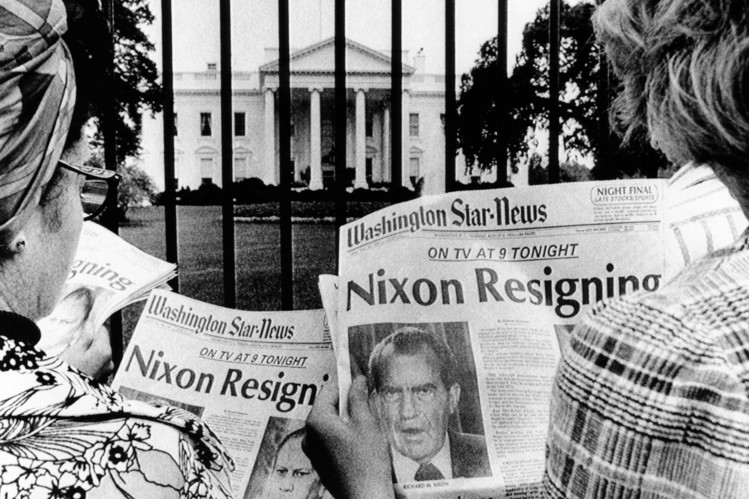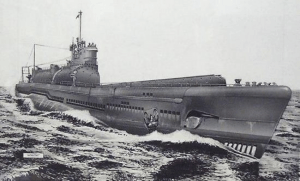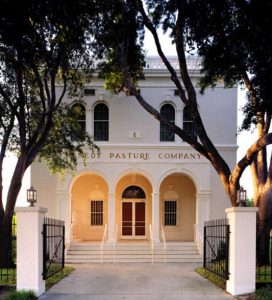Winner of the Fall 2019 StMU History Media Award for
Best Article in the Category of “Political History”
“People have got to know whether or not their President is a crook. Well, I’m not a crook. I’ve earned everything I’ve got.”1 President Richard Nixon at a November 17, 1973 news conference. The state of American politics was at an all time low during Nixon’s second term. He was in a war against his own words and actions everyday, leading up to him resigning from his presidency. On October 20, 1973, the day that has subsequently become known as the “Saturday Night Massacre,” momentum towards the impeachment of Nixon grew rapidly. The Saturday Night Massacre was when President Richard Nixon fired Special Prosecutor Archibald Cox as well as accepting the resignations of Attorney General Elliot Richardson and Deputy Attorney General William Ruckelshaus. Peter Rodino had been Chairman for the House Judiciary Committee for only a few months when his committee began to hear the case for Nixon’s impeachment. On October 23, 1973, resolutions calling for impeachment, impeachment investigations, and appointment of a special prosecutor were introduced against Nixon.2
Peter Rodino went from being a little man, both in reputation and in stature, to being the big boss by working sixteen to eighteen hour work days as soon as the congressional recess ended on January 21, 1974. During this time, Rodino went through extreme mental and physical changes. Due to his time being consumed by the amount of work he was indulging in, he had gained some weight. So in order to lose it, he would skip lunch throughout the week and existed instead on black coffee.3 The committee, as a whole, was not able to function properly, due to their inability to properly retrieve evidence to use against Nixon and figure out how to properly protect it. In February of 1974, Rodino believed he picked up a virus from Florida, leading him to have shortness of breath, become light headed, have chest pains intensify and became tired quicker. He checked up with a doctor after a break on the House floor after becoming alarmed of the symptoms he was experiencing. The doctor sent him to Bethesda Naval Hospital where he was given an electrocardiogram examination and other checks to determine if he had suffered from a heart attack, which he hadn’t, but his doctor did tell him to rest.4

After the Saturday Night Massacre, Rodino began his committee’s investigation. It was not until October 30, 1973, that the House Judiciary Committee began to consider the impeachment process against Nixon. In early January 1974, speculation arose that Nixon was going to resign from the presidency. On February 6, 1974, the process for impeaching Nixon was formally initiated, with the House of Representatives passing a resolution. The resolution gave the Judiciary Committee the authority to investigate whether there was sufficient grounds to impeach Nixon of high crimes and misdemeanors in relation to the Watergate break-in and subsequent cover-up. On April 11, 1974, the Judiciary Committee subpoenaed 42 White House tapes of key conversations. A week later, Leon Jaworski (the Special Prosecutor for the Watergate Case) sent subpoenas for 64 additional recordings.5 Although Nixon wanted to refuse, he eventually ordered transcripts of the tapes to be edited, or removed, so he could send that to Jaworski. The transcripts became public on April 30; however, the tapes and other documents were still withheld from Jaworski. The Judiciary Committee rejected Nixon’s transcripts stating that they did not comply with the terms of the subpoena.6 The Democratic half of the proposed ad hoc committee met behind closed doors, so that after the general staff meeting, Jerry Zeifman (Chief Counsel of the House Judiciary Committee), Larry O’Brien (Chair of Democratic National Committee), and Rodino went to Rodino’s office to draft the statement he expected to issue after the Democrats met. When the three got there, an aide told them the committee had received four hundred telegrams responding to Nixon’s tape offer. They all said to impeach him anyhow.7

Peter Rodino spoke to the House in February 1974 saying, “Whatever the result, whatever we learn or conclude, let us now proceed with such care and decency and thoroughness and honor that the vast majority of American people, and their children after them, will say: ‘That was the right course. There was no other way.'”8 On July 27, 1974, the Judiciary Committee approved the first article of impeachment against Nixon. Two more articles were approved on July 29 and 30. The Articles of Impeachment were over Nixon’s obstruction of justice, abuse of power, and contempt of Congress. Peter Rodino gave a speech during the 1974 voting of Articles for Impeachment saying, “We have deliberated. We have been patient. We have been fair. Now the American people, the House of Representatives and the Constitution and the whole history of our republic demand that we make up our minds.”9
During the House of Judiciary Committee impeachment hearings, the primary focus was Article One of the United States Constitution. The power to impeach was vested directly in the House of Representatives by the second section of the first article of the Constitution. To grant court intervention would be to strike at the very heart of the concept of three co-equal branches of government.10 “Article I, section 3, clause 7 of the Constitution provides that a person removed from office by impeachment and conviction ‘shall nevertheless be liable to Indictment, Trial, Judgment and Punishment, according to the Law.’ But there are no guidelines in the Constitution about a President who has resigned.” Article I charged Nixon with Obstruction of Justice that had a vote of 27 to 11. Article II charged Nixon with Abuse of Power that had a vote of 28-10. And lastly, Article III charged Nixon with Contempt of Congress with a vote of 21-15.11 The other two articles that were being considered, were rejected. They charged Nixon with Ordering the Falsification of records (concerning the secret bombing of Cambodia), 12-26, and Personal Finances and Failure to Pay Taxes, losing by the same margin. Evidence of the tapes surfaced on August 5, when Nixon complied with the U.S. Supreme Court’s ruling requiring him to provide transcripts of the missing tapes. The evidence that the tapes showed was that clearly he implicated himself in a cover-up of the Watergate break-in. August 7, 1974, Senators Goldwater and Scott, and Representative Rhodes met with Nixon in the Oval Office. They spoke to him about his support diminishing in Congress. Goldwater later wrote, “[Nixon] knew beyond any doubt that one way or another his presidency was finished.”12

The president resigned ten days after the Judiciary Committee voted on the three articles, before the full House voted on whether to approve the articles for a Senate trial. On August 8, 1974, Nixon announced that he was resigning from the presidency, labeling himself as the first president in U.S. history to voluntarily resign from office. On August 22, a 528-page report appeared laying out details of what it called the “clear and convincing evidence” against Nixon. Criminal prosecution was a possibility on both the federal and state level against Nixon. However, on September 8, 1974, President Gerald Ford issued a full and unconditional pardon of Nixon. This pardon immunized him from prosecution for any crimes he had “committed or may have committed or taken part in” as president.13 Nixon’s official response to the pardon (September 1974): “Looking back on what is still in my mind a complex and confusing maze of events, decisions, pressures, and personalities, one thing I can see clearly now is that I was wrong in not acting more decisively and more forthrightly in dealing with Watergate, particularly when it reached the stage of judicial proceedings and grew from a political scandal into a national tragedy. No words can describe the depths of my regret and pain at the anguish my mistakes over Watergate have caused the nation and the presidency, a nation I so deeply love and an institution I so greatly respect.”14 However, Nixon proclaimed his innocence until his death in 1994.
- Carroll Kilpatrick, “Nixon Tells Editors, ‘I’m Not A Crook’,” November 18, 1973, The Washington Post, https://www.washingtonpost.com/politics/nixon-tells-editors-im-not-a-crook/2012/06/04/gJQA1RK6IV_story.html. ↵
- Howard Fields, High crimes and Misdemeanor: Was Nixon Guilty? How the Rodino Committee Reached Its Conclusion (New York: Norton, 1978), 6. ↵
- Howard Fields, High crimes and Misdemeanor: Was Nixon Guilty? How the Rodino Committee Reached Its Conclusion (New York: Norton, 1978), 5, 103. ↵
- Howard Fields, High crimes and Misdemeanor: Was Nixon Guilty? How the Rodino Committee Reached Its Conclusion (New York: Norton, 1978), 5, 104. ↵
- Howard Fields, High crimes and Misdemeanor: Was Nixon Guilty? How the Rodino Committee Reached Its Conclusion (New York: Norton, 1978), 193. ↵
- Stanley I. Kutler, The Wars of Watergate: The Last Crisis of Richard Nixon (New York: Knopf, 1990), 323. ↵
- Howard Fields, High crimes and Misdemeanor: Was Nixon Guilty? How the Rodino Committee Reached Its Conclusion (New York: Norton, 1978), 52-53. ↵
- The Washington Post, “Peter Rodino Jr., 95; Led Nixon Impeachment Hearings in ’74,” Los Angeles Times, May 8, 2005, https://www.latimes.com/archives/la-xpm-2005-may-08-me-rodino8-story.html. ↵
- Peter Rodino, “Watergate Figure Peter Rodino Dies” (speech, Washington, DC, July 1974. NPR. https://www.npr.org/templates/story/story.php?storyId=4645365. ↵
- Howard Fields, High crimes and Misdemeanor: Was Nixon Guilty? How the Rodino Committee Reached Its Conclusion (New York: Norton, 1978), 5, 105. ↵
- “Articles of Impeachment,” 1995-2019, Watergate.info,https://watergate.info/impeachment/articles-of-impeachment. ↵
- Bonnie K. Goodman, “OTD in History… July 27, 29 & 30, 1974, the House introduces articles of impeachment against President Richard Nixon,” July 27, 2018, Medium, https://medium.com/@BonnieKGoodman/otd-in-history-july-27-29-30-1974-the-house-introduces-articles-of-impeachment-against-8d638cb266c0. ↵
- Stanley I. Kutler, The Wars of Watergate: The Last Crisis of Richard Nixon (New York: Knopf, 1990), 555. ↵
- “The Statement by Nixon,” September 9, 1974, The New York Times, https://www.nytimes.com/1974/09/09/archives/the-statement-by-nixon-pr.html. ↵



51 comments
Emmanuel Ewuzie
I would have appreciate this article more if the main protagonist was different or if the article went into more detail and did a better job diving into the strife and struggle the main protagonist went to. I’ve known about Watergate my whole life. My father loves to recant and laugh about it all the time. He thinks Trump will be in the same situation as Nixon and forced to resign.
Kristina Tijerina
The Watergate scandal is something that every history teacher I had in high school talked about. I was fairly aware of what Nixon did during this scandal, and what he did with the tapes. He tried to save himself from being impeached, but he made it look worse on himself after he refused to send the tapes. I don’t think Nixon was a good president, and I don’t think he really deserved his presidency. He literally resigned so that he wouldn’t be impeached, because he knew he was about to get impeached. This article gave me a lot more insight as to what happened during the time of the impeachment process for Nixon.
Todd Brauckmiller Jr.
Throughout history, the Watergate scandal is something I found quite interesting. Looking back at United States history this is the first time we have had a president that resigned from office. Even if Nixon did not resign he still would have been removed from the presidency. Let this be a very important part of history that we all can learn from.
Paul Garza
Everyone has heard about Nixon and the watergate scandal. That is an important part of the history of the united states, it is super significant considering that the current president of the United States is going through impeachment. Overall this article was very informative, before reading this article I did not know that Nixon received a full pardon from Gerald Ford.
Priscilla Poorbaugh
The Watergate Scandal is such an important part of US history. I also think it is really reverent to today, given that Trump is on an impeachment trial. This article was very informative, the author does a really good job going into detail about the whole impeachment process Nixon went through. I feel lit was smart and cowardly of Nixon to resign before he was officially impeached, because he would have been the first president to be impeached during his time.
Pablo Ruiz
Water gate is piece of history our country will never forget. It was a modern demonstration of our governments checks and balances. I find this article very interesting because of what is going on in our government right now. Water gate in many ways has set the standard for today’s impeachment process. It was cool to learn about the impeachment process through Nixon’s impeachment.
Azucena Cuevas
I had recently had a conversation about the Watergate scandal so this was a fun read to brush up some facts. It’s really tragic that Nixon had committed such things and tried to edit his tapes to avoid being impeached. After all, he came off as a coward for resigning office before a decision was made. I think it was easier for him then having to go to prison for his crimes.
Aaron Peters
I’m glad I read this article, with current events surrounding the president, I’m glad this article was able to show another example of how the impeachment process works, and how the tapes totally destroyed any hopes president Nixon had of getting away with his crimes, though, In a way i suppose he did, since the following president Gerald R. Ford pardoned him.
Mitchell Yocham
The Watergate scandal was a big event in history, our biggest fear was leaked: the government is spying on us. This horrible event was something that Nixon felt was protecting the United States and protecting the citizens but he didn’t feel the need to tell us. The biggest problem is that we are a democracy so we should be able to at least be told that the government is spying on those (and only those) that pose a threat to society.
Jose Maria Llano Aranalde
I remember reading about the Watergate scandal in high school. It interested me a lot because I had never heard of a president getting impeached before. I liked that the article went into deep detail about how the impeachment process happened. This was a very important time in US history because after the impeachment of Nixon people did not trust the government the same.